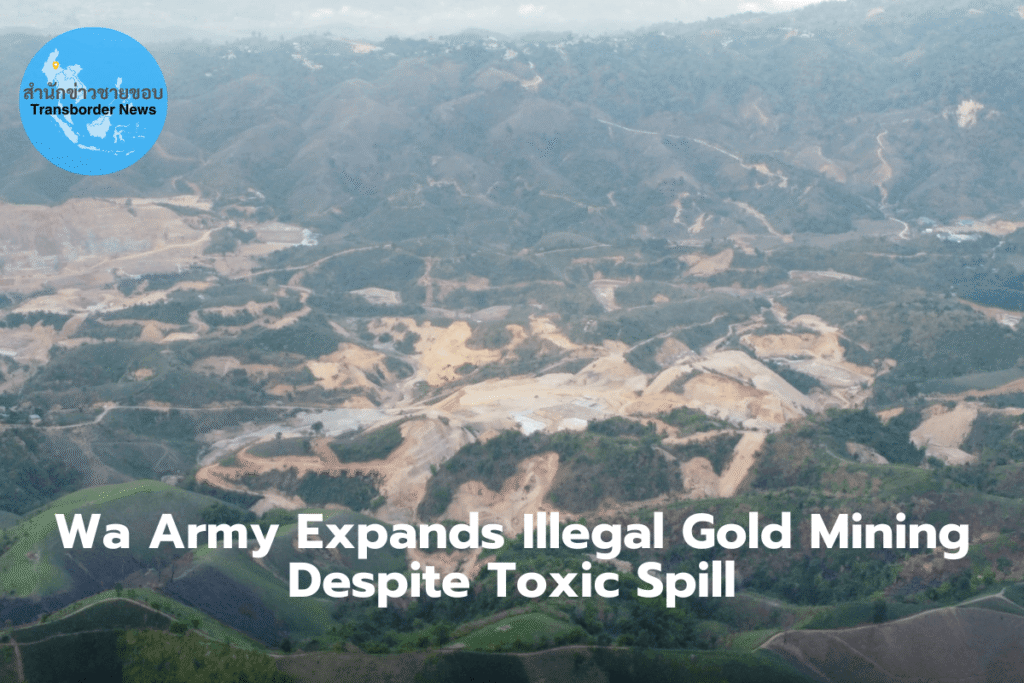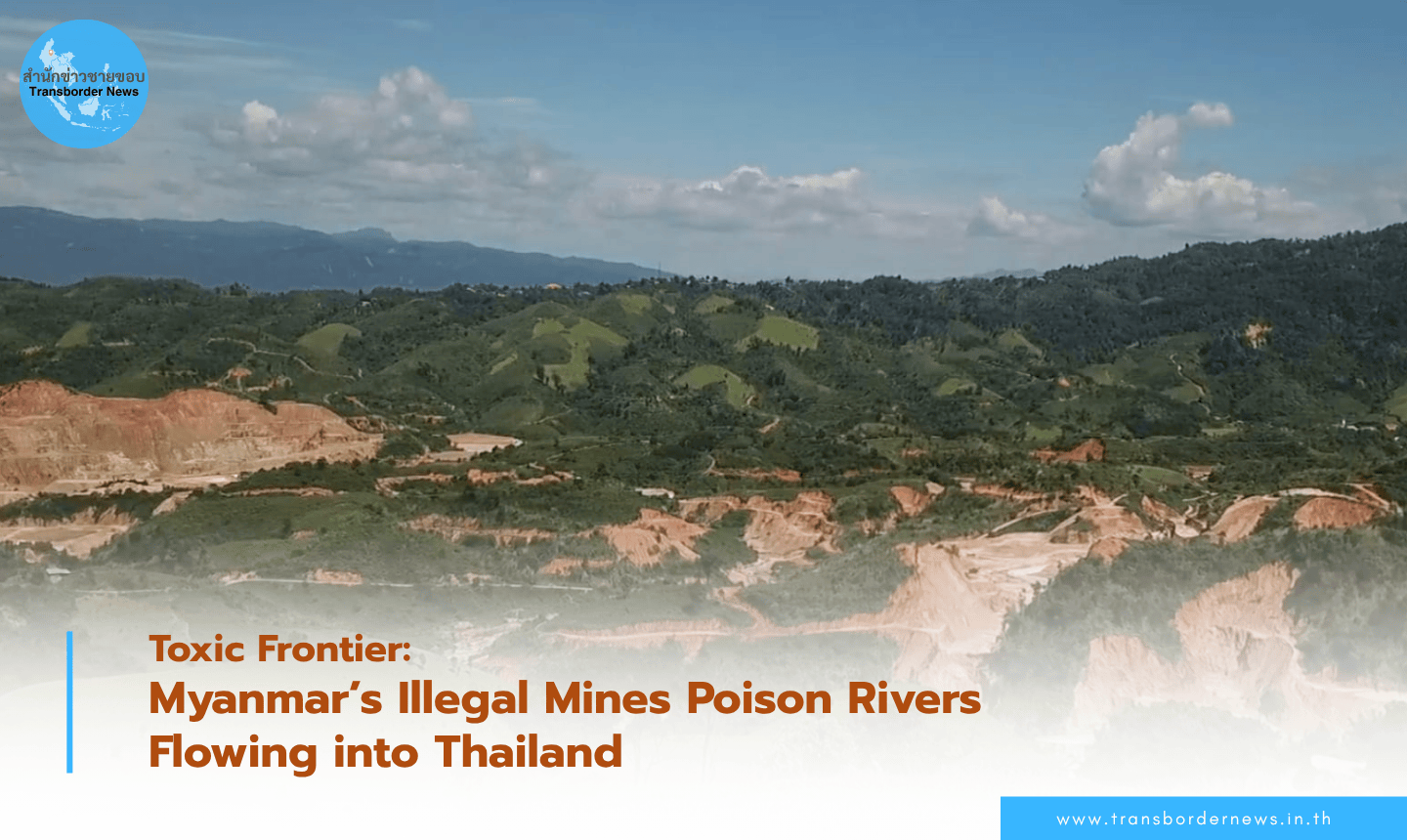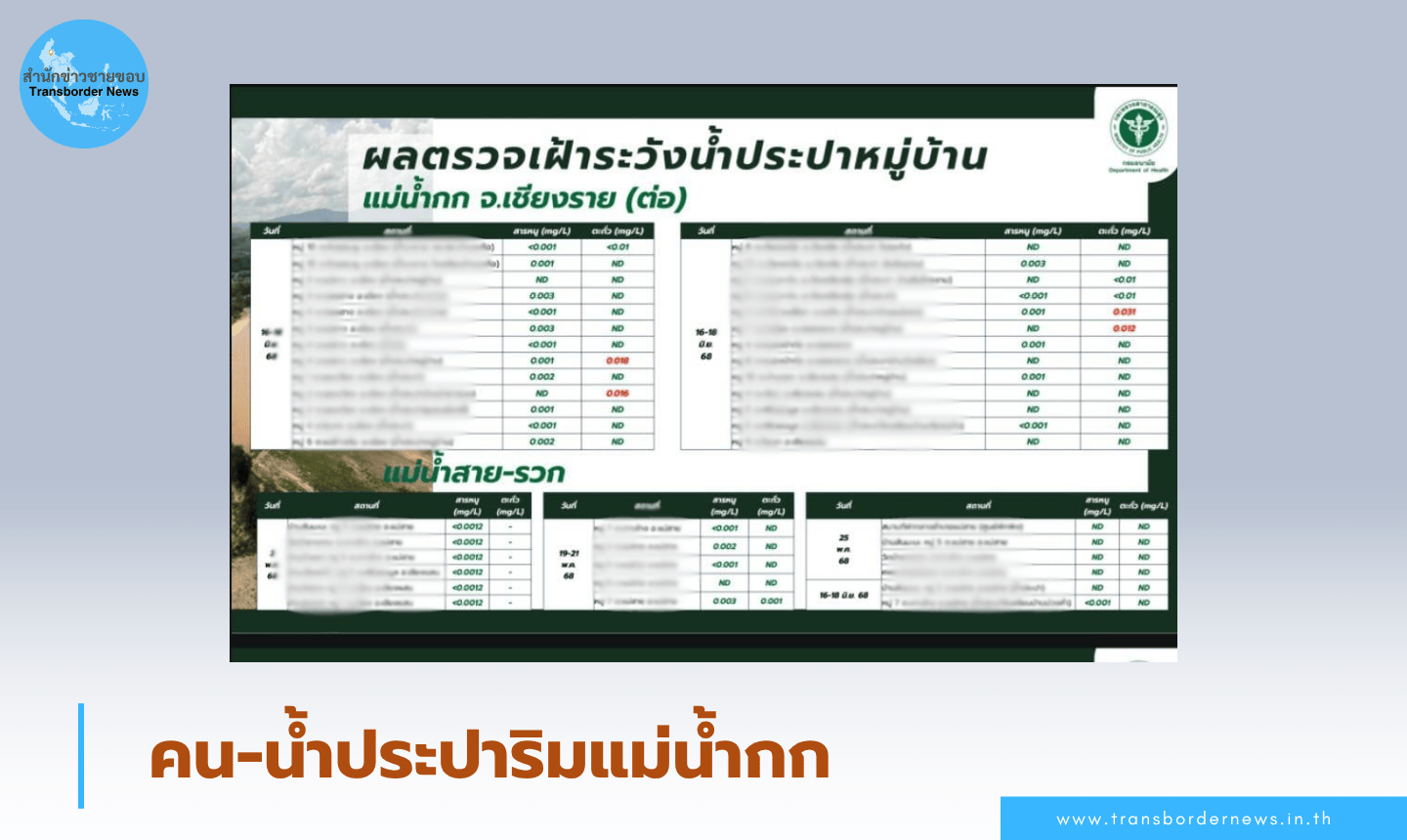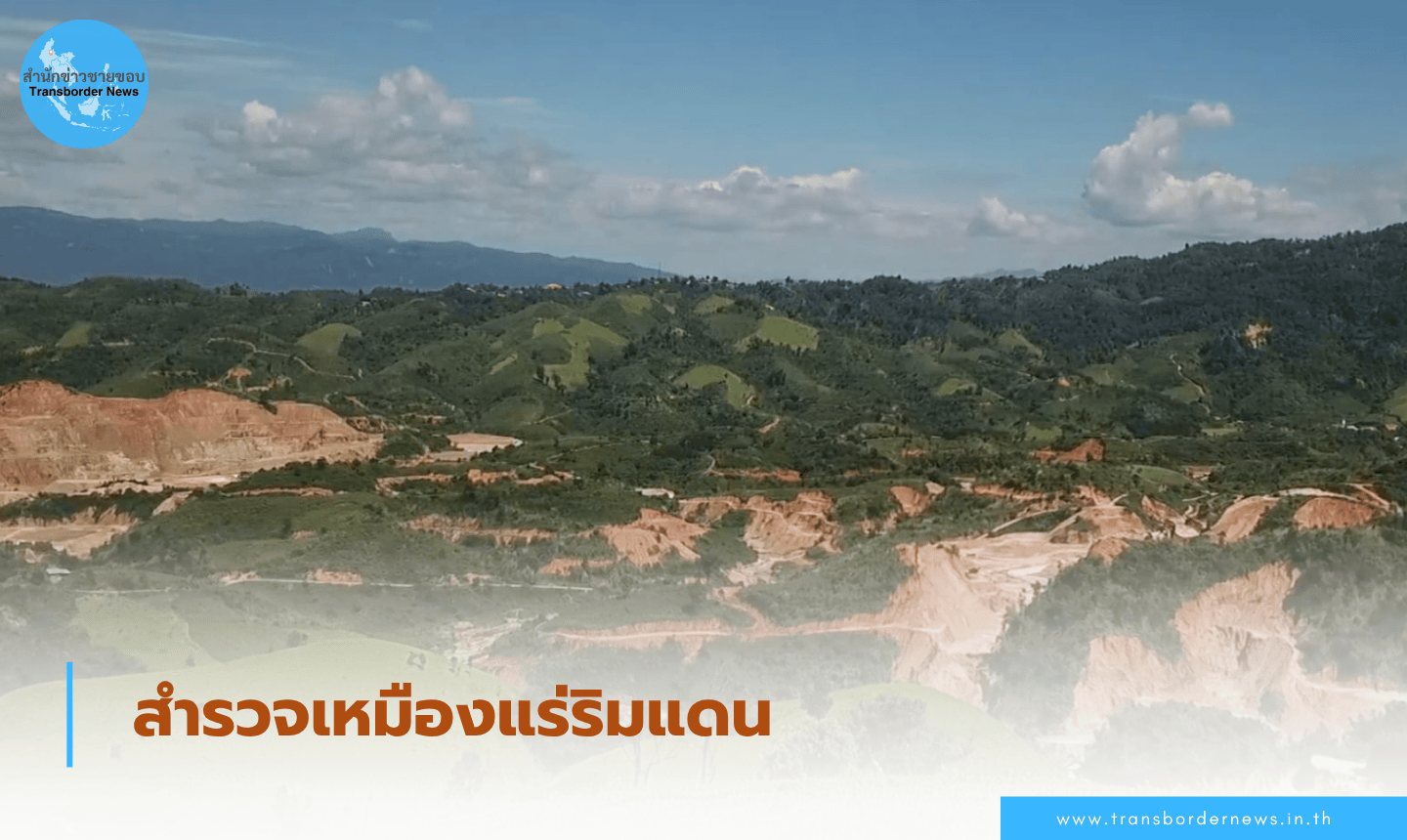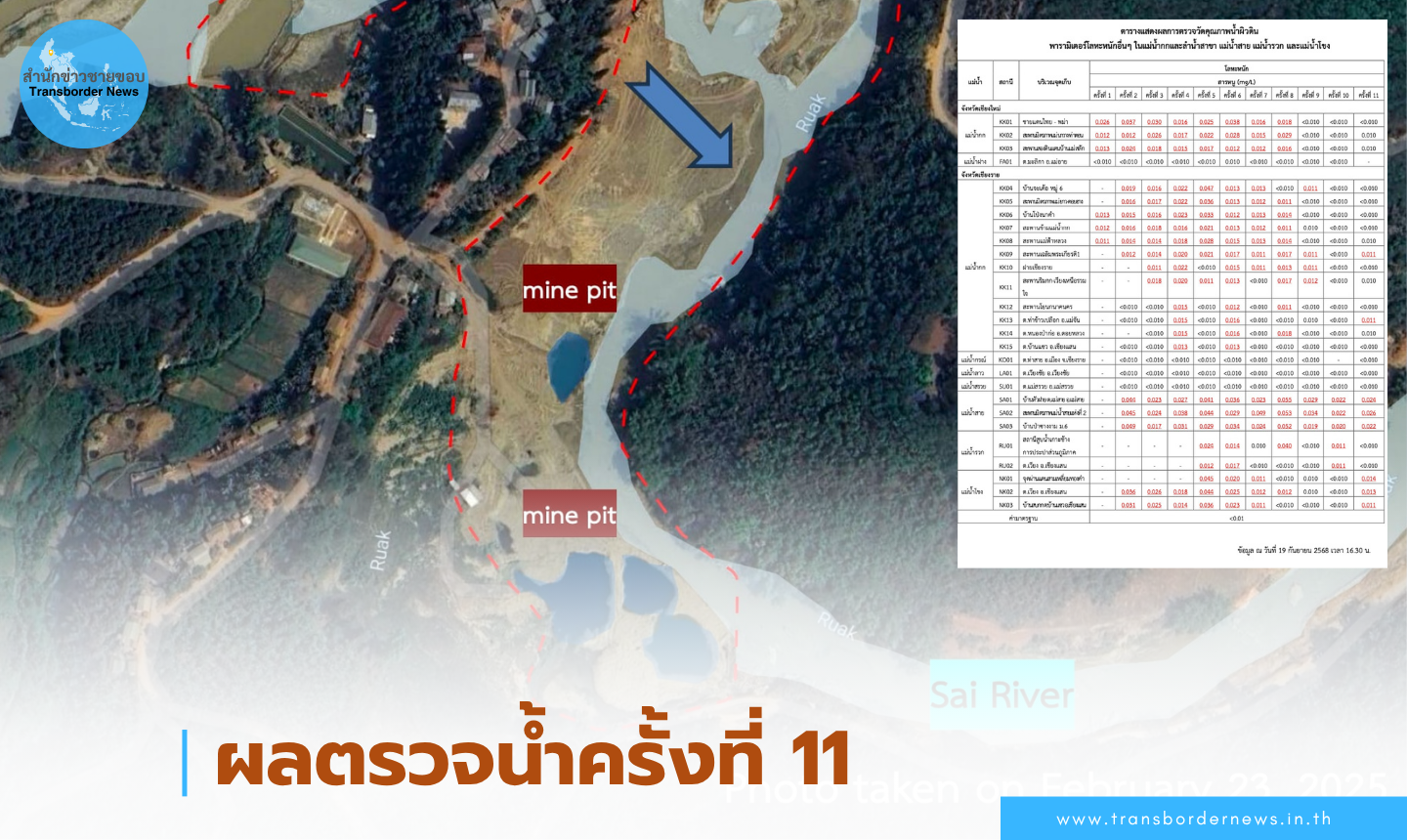14 May 2025 — Shan State, Myanmar / Chiang Rai, Thailand: Gold mining operations controlled by Wa armed groups in Myanmar’s Shan State are expanding further, ignoring growing concerns about arsenic contamination in the Kok River that flows downstream into northern Thailand. Despite confirmed reports of toxic pollution, operations continue unchecked — causing widespread health and environmental impacts on both Burmese and Shan ethnic communities along the Kok and Sai Rivers.
A local resident from a Shan State village near the Kok River revealed that Chinese operators, with permission from Wa authorities, have begun exploring new gold mining sites closer to Piang Kham village, a Shan community. Local villagers have been hired to assist with land surveys for new processing plants.
“They’ve heard about the arsenic contamination found in Thailand, but they show no intention of stopping. In fact, they’re expanding the mining zones. The dredging boats are now being moved to more hidden locations because leaked images have previously reached the public,” the villager said.
Currently, there are three active mining sites along the Kok River, where dredging boats have been used directly in the river, though only two are currently operational; one sank and is being repaired, while another is under construction.
Downstream Thai communities in Chiang Rai and Chiang Mai are suffering the consequences. Locals report that the water flowing from Mong Kok is thick with sediment, reaching Tha Ton sub-district of Chiang Mai, and making it unsafe for use. In Piang Kham and Ban Ta Kok, no one dares to swim in the river anymore. At least three children have developed serious skin rashes after coming into contact with the water, and fish deaths are now a frequent sight — discouraging locals from fishing or consuming river fish.
“Burmese villagers are just as affected as Shan people. Everyone is angry with the Wa forces/UWSA, but we feel powerless. The river is now too dangerous to use,” the villager added.
In response, Dr. Suebsakun Kidnukorn of the Social Innovation Unit at Mae Fah Luang University (MFU) has urged the three major universities in Chiang Rai to establish a joint water quality monitoring center. Citing outcomes from the recent Northern Mekong Basin Committee meeting, he noted that related agencies must submit work plans and budgets by 20 May 2025.
“I call on the universities to collaborate in setting up a scientific lab to monitor heavy metal contamination in water, sediment, aquatic life, and agricultural soil — and to check water supplies, groundwater, crops, and the health of local residents. We need real-time, reliable data to inform communities, businesses, and public officials,” Dr. Suebsakun said.
He emphasized that this is a long-term issue: “Heavy metal pollution doesn’t go away in a few years — it stays for decades. Right now, testing is only available in Chiang Mai or Bangkok, which causes delays. Meanwhile, farmers still don’t know if their land is contaminated. Businesses, hotels, are paying out of pocket (for water testing) to reassure tourists. It’s time our universities step up as trusted scientific resources for the Kok, Sai, and Mekong.”
Transborder News also visited the upper Sai River, along the Thai-Myanmar border, where villagers confirmed that mining activity under Wa/UWSA control continues unabated. In some areas, dredging is taking place directly in the river. Large tracts of land have been cleared, and mining areas continue to expand.
Note: The attached image shows wide-scale land clearing in the upper Sai River area, where Wa forces have granted Chinese operators permission to conduct mining operations.
See original Thai article, https://transbordernews.in.th/home/?p=42529

